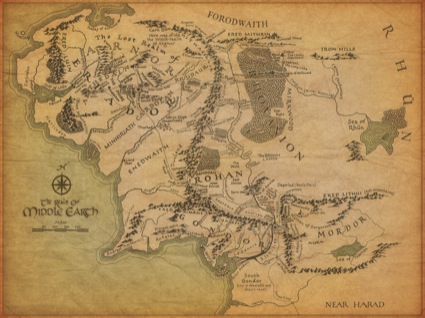(I quote this passage on Tolkien’s relations in full from page 168 of The Inklings.)
Friendship with other men played as important a part in Tolkien’s life as it did in Lewis’s. Unlike Lewis, Tolkien encountered romantic love at an early age, for when he was sixteen he fell in love with a girl of nineteen, a fellow orphan who lived in his Birmingham lodging house. But he and Edith Bratt were soon separated by his guardian, and in late adolescence Tolkien was thrown back on friendship with others of his own sex, so much so that by the time he was reunited with her he had, as it were, lost touch with her, and had devoted the greater part of his deepest affections to his male friends.
He and Edith were eventually married and had four children, but family affairs (though of great interest and importance to Tolkien) seemed to him to be quite apart from his life with his male friends. This division of his life into water-tight compartments inevitably caused a strain, and Edith Tolkien resented the fact that such a large part of her husband’s affections were lavished on Lewis and other men friends, while Tolkien himself felt that time spent with the Inklings and in other male company could only be gained by a deliberate and almost ruthless exclusion of attention to his wife.
‘There are many things that a man feels are legitimate even though they cause a fuss,’ he wrote to a son who was about to be married. ‘Let him not lie about them to his wife or lover! Cut them out – or if worth a fight: just insist. Such matters may arise frequently – the glass of beer, the pipe, the non writing of letters, the other friend, etc. etc. If the other side’s claims really are unreasonable (as they are at times between the dearest lovers and most loving married folk) they are much better met by above board refusal and “fuss” than subterfuge.’
Edith Tolkien was capable of responding to this attitude with equal obstinacy, and as a result the atmosphere in the Tolkien household at Northmoor Road was sometimes as difficult as that in the Lewis-Moore menage at the Kilns.

